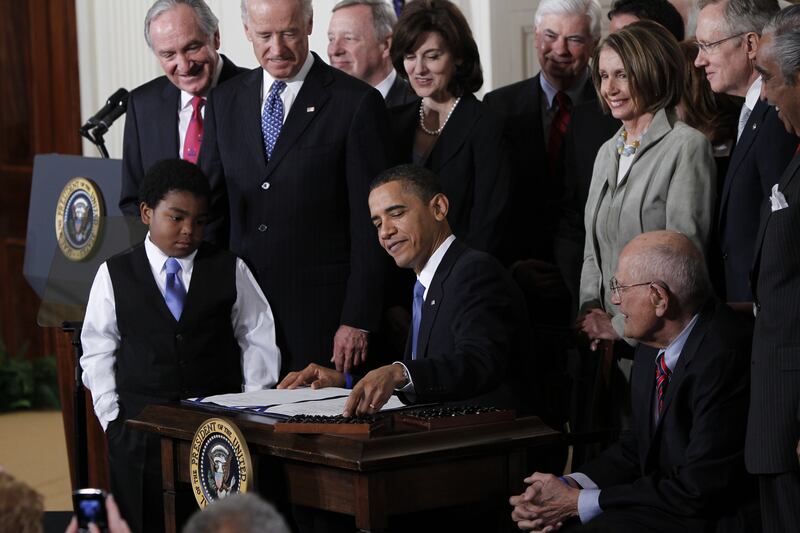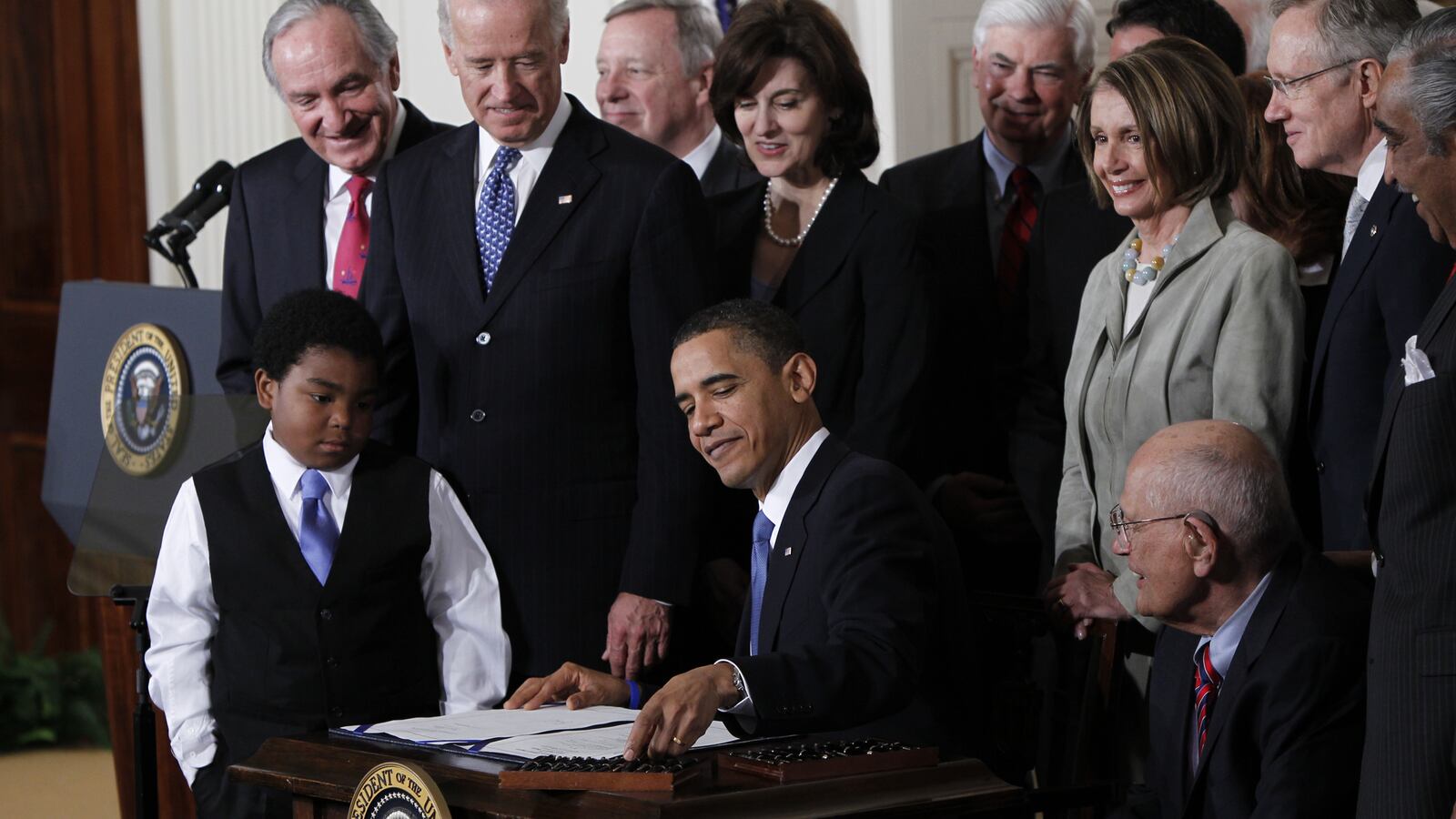To its many critics, the Affordable Care Act is an unmitigated economic disaster—a tax increase, a job killer, an unbearable burden. But just as one man’s liability is another man’s asset, one company’s economic cost can be another company’s economic gain.

In fact, the effort to erect the Obamacare infrastructure is creating a large number of private-sector positions. Thousands of workers today have new jobs thanks to the positions opened up by the ACA. And many of those people are engaged in building the exchanges. Health-care exchanges, which open in October, are a mandated component of the ACA that are meant to help individuals and employers compare insurance-provider options side by side. The exchanges are also proving to be major job creators, as states and the federal government hire contractors to design, build, and operate them.
“It just grew exponentially,” Sanjay Singh, co-founder of hCentive, a technology company founded in 2010 that contracts with government to set up state exchanges, said about his company’s workload. “The scope of this is so big. Once we started to see the implementation and customization phase, we realized we just needed more and more people to talk to the head consumers, to run the technical side of things, to look through state’s requirements.”
Singh, a middle-aged immigrant from India with a background in software engineering, took a gamble and started hCentive with partner Manoj Agarwala in 2010. They acted before the ACA was signed into law, all in hopes that it would create a new market—and they were right. “March of 2010, the president signed the bill, and that was the year we got our first client,” Singh said. Now hCentive has contracts to create software and websites for exchanges in New York, Colorado, Kentucky, and Illinois. Based in a nondescript office park just off the Dulles Toll Road in Reston, Virginia, hCentive has added 110 employees in the past three years.
Larger firms have also increased hiring to help with contracted work on state and federal exchanges. CGI, a global IT company, is the prime contractor working on exchanges in Colorado, Hawaii, Vermont, and Massachusetts and is a subcontractor in Kentucky and in California as well. It has hired about 250 people to provide manpower in disciplines such as technical architecture and security.
Deloitte, another huge government contractor, has an estimated 1,100 people working on health-care public-sector issues. Many of the hires were recent college grads. Deloitte has contracts to work on exchanges in Washington state, Kentucky, Rhode Island, and Connecticut and is building components of eligibility systems in 19 states.
At the same time, private health-care providers are hiring and investing to prepare for the advent of ACA. “The jobs which you can say are somewhat related to this law, they go beyond creating state exchanges,” said Singh. Insurance companies like Blue Cross and Aetna had to change their entire systems to connect to the newly built exchanges online and, as a result, hired companies to facilitate the transition.
However, the amount of potential jobs Obamacare can create is often overshadowed by the number of job losses some expect from the implementation of the ACA on small businesses. For instance, the Congressional Budget Office estimates that around 800,000 jobs will be lost because of the ACA’s new employer mandates. The mandates make business owners with 50 or more employees offer health-care insurance or face a $2,000 fine. The CBO expects that some businesses will cut down on employees or their hours to avoid paying more. A June Gallup poll has also shown that low-income and low-expertise positions are the most likely to be cut down by employers hoping to circumvent paying, and that some businesses have already started cutting down hours.
Even so, the number of jobs created directly and indirectly from the ACA may be enough to mitigate a portion of the rise in job losses that could be attributed to Obamacare. “The short answer for me is that in the end, it will probably all be a wash,” said Brad Herring, an associate professor of health economics at Johns Hopkins University. While critics are correct to note that some aspects of the bill may reduce jobs, “they are not being totally forthcoming when they don’t acknowledge the other side of the story.”
Singh, on the other hand, is optimistic that the new health-care sector built by the ACA will keep growing and creating new jobs. He likens Obamacare to Medicaid—a program that will continue to expand and morph for years to come. “What is happening now is really a phase 1 of what this will look like in the next 5 to 10 years,” he said. “Like any solution, the first version is so different. Two to three years down the road these exchanges will look different. The government will continuously be changing stuff. So we aren’t looking at this like, Oct. 1 is done; now we can go home. We are looking at it as a first phase that will continue to grow.” And hCentive currently has nine job openings.






